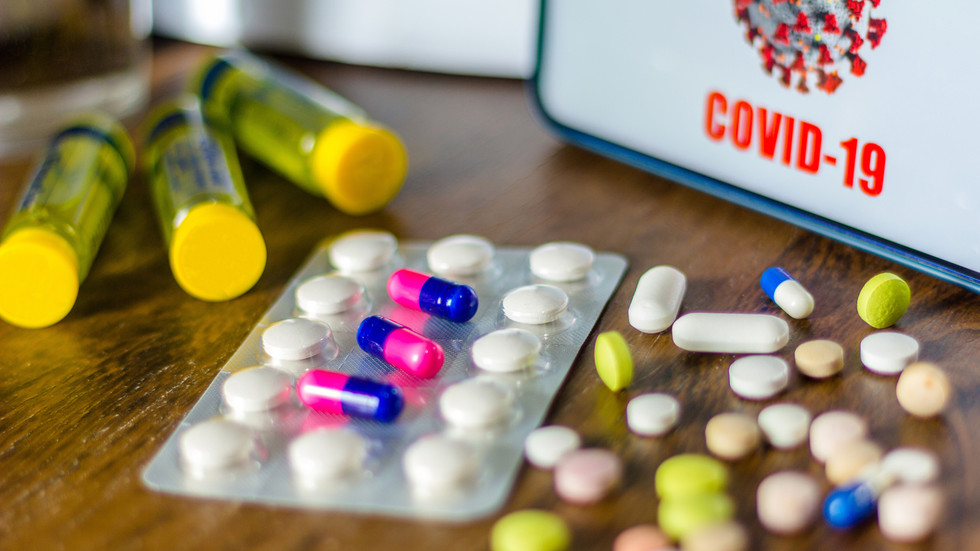I’ve lost all trust in medical research – the financial muscle of Big Pharma has been busy distorting science during the pandemic
from RT:
 Evidence that a cheap, over-the-counter anti-malarial drug costing £7 combats Covid-19 gets trashed. Why? Because the pharmaceutical giants want to sell you a treatment costing nearly £2,000. It’s criminal.
Evidence that a cheap, over-the-counter anti-malarial drug costing £7 combats Covid-19 gets trashed. Why? Because the pharmaceutical giants want to sell you a treatment costing nearly £2,000. It’s criminal.
A few years ago, I wrote a book called ‘Doctoring Data’. This was an attempt to help people understand the background to the tidal wave of medical information that crashes over us each and every day. Information that is often completely contradictory, viz ‘Coffee is good for you… no, wait it’s bad for you… no, wait, it’s good for you again,’ repeated ad nauseam.
I also pointed out some of the tricks, games and manipulations that are used to make medications seem far more effective than they truly are, or vice versa. This, I have to say, can be a very dispiriting world to enter. When I give talks on this subject, I often start with a few quotes.
For example, here is Dr Marcia Angell, who edited the New England Journal of Medicine for over 20 years, writing in 2009:
“It is simply no longer possible to believe much of the clinical research that is published, or to rely on the judgement of trusted physicians or authoritative medical guidelines. I take no pleasure in this conclusion, which I reached slowly and reluctantly over my two decades as editor.”
Have things got better? No, I believe they’ve got worse – if that were, indeed, possible. I was recently sent the following email about a closed-door, no-recording-allowed discussion, held in May of this year under no-disclosure Chatham House rules:
“A secretly recorded meeting between the editors-in-chief of The Lancet and the New England Journal of Medicine reveal both men bemoaning the ‘criminal’ influence big pharma has on scientific research. According to Philippe Douste-Blazy, France’s former health minister and 2017 candidate for WHO director, the leaked 2020 Chatham House closed-door discussion was between the [editor-in-chiefs], whose publications both retracted papers favorable to big pharma over fraudulent data.
The email continued with a quote from that recording: ‘Now we are not going to be able to … publish any more clinical research data because the pharmaceutical companies are so financially powerful today, and are able to use such methodologies, as to have us accept papers which are apparently methodologically perfect, but which, in reality, manage to conclude what they want them to conclude,’ said The Lancet’s editor-in-chief, Richard Horton.”
A YouTube video where this issue is discussed can be found here. It’s in French, but there are English subtitles.
The New England Journal of Medicine and The Lancet are the two most influential, most highly resourced medical journals in the world. If they no longer have the ability to detect what is essentially fraudulent research, then… Then what? Then what, indeed?
In fact, things have generally taken a sharp turn for the worse since the Covid-19 pandemic struck. New studies, new data, new information is arriving at breakneck speed, often with little or no effective review. What can you believe? Who can you believe? Almost nothing would be the safest course of action.
One issue has played out over the past few months, stripping away any remaining vestiges of my trust in medical research. It concerns the anti-malarial drug hydroxychloroquine. You may well be aware that Donald Trump endorsed it – which presents a whole series of problems for many people.
However, before the pandemic hit, I was recommending to my local NHS trust that we should look to stock up on hydroxychloroquine. There had been a great deal of research over the years strongly suggesting it could inhibit the entry of viruses into cells, and that it also interfered with viral replication once inside the cell.
This mechanism of action explains why it can help stop the malaria parasite from gaining entry into red blood cells. The science is complex, but many researchers felt there was good reason for thinking hydroxychloroquine may have some real, if not earth-shattering, benefits in Covid-19.



